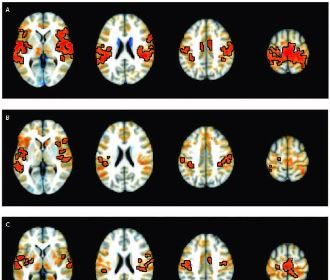Tools to Handle the Challenges of Parenting During Pandemic

Schools and activities are closed, parents are trying to work from home, and everyone feels cooped up and a little crazy. Parenting during a pandemic puts additional stress on a family, but there are strategies that can help you to get through it and even experience some joy during this time.
Positive Parenting Solutions’ Founder Amy McCready has spent years offering proven strategies to make the energy in your home more positive and fun and help your family feel more connected. Now she shares three concrete strategies to minimize the chaos and maximize the connection with your children.
“How well your children adapt [to life during the pandemic] is really going to depend on how you react to this change and on the energy that you’re putting out there,” says McCready, adding that whether your demeanor is one of calm and in control or one of fear and uncertainty, your kids will mirror it.
“Act like the ‘movie version’ of yourself, even if you have to fake it a little bit, because they are going to absorb [your feelings] and you’re going to see it in their behavior.”
McCready’s first tip is to dedicate what she calls “mind, body, and soul time,” to each child.
“Kids need attention and emotional connection, but when life gets crazy and their attention needs don’t get filled, they don’t communicate it; they present it in behaviors that we find frustrating, like being clingy or fighting with siblings.”
Misbehavior is not random, and according to McCready’s coaching, it can be tamed with 10 or 15 minutes of fully present scheduled individual time with each child, doing what the child wants to do.
“Mind, body, and soul time is an investment in good behavior and cooperative attitude.”
Her second strategy focuses on routines, which she insists are essential, even as things seem to be changing daily around us. “The more we can keep things the same, the less anxious your kids will be, and the more their behavior and their emotions are going to stay in check.”
Get your children dressed each day, she says. Keep bedtimes the same as normal schooldays, though letting kids sleep later in the mornings isn’t a bad idea. And start the day’s activities at a set time, even if it is later than on a morning when they would be getting on the bus and heading off to school.
“My silver bullet tool for structuring schedules is the when/then routine,” says McCready.
“The yucky stuff comes before the more fun parts. So as you are scheduling your day — including that necessary mind, body, and soul time — make sure that, for example, the math homework gets done before outside movement. Or, another example, ‘When you’ve completed your family contributions, then you can enjoy family time.’”
She further suggests using a visual timer in lieu of a countdown timer so that children can process the passing of time and understand that if they finish their more burdensome work, they can get to the pleasurable tasks faster.
The last of McCready’s essential tips is to really lean in to family meetings as they can help with family problem-solving, connecting as a family, and building skills like teamwork, leadership, empathy, negotiation, and cooperation. Family meetings can also help with scheduling, meal planning, and determining family contributions (McCready’s alternative term for chores).
“You never get buy-in without weigh-in,” she says. “Simple family meetings at least once a week allow us to talk through problems that came up that week and bring your kids into the decision-making process. By creating a decision-rich environment, you offer power and control — at a time when everything feels totally out of control — in positive ways. And the more everyone participates in decisions that affect their lives, the more cooperative they’ll be in following through.”
McCready says that, believe it or not, there are silver linings to the pandemic experience. Spending time with family is a major one. Proving our resilience is another.
“Resilience is one of the most important skills that we know our children are going to need to be successful, functioning adults. This is an amazing time to model that resilience for our children. What we do day-in and day-out will really show how we manage adversity, handle change, and work through uncertainty.”
























